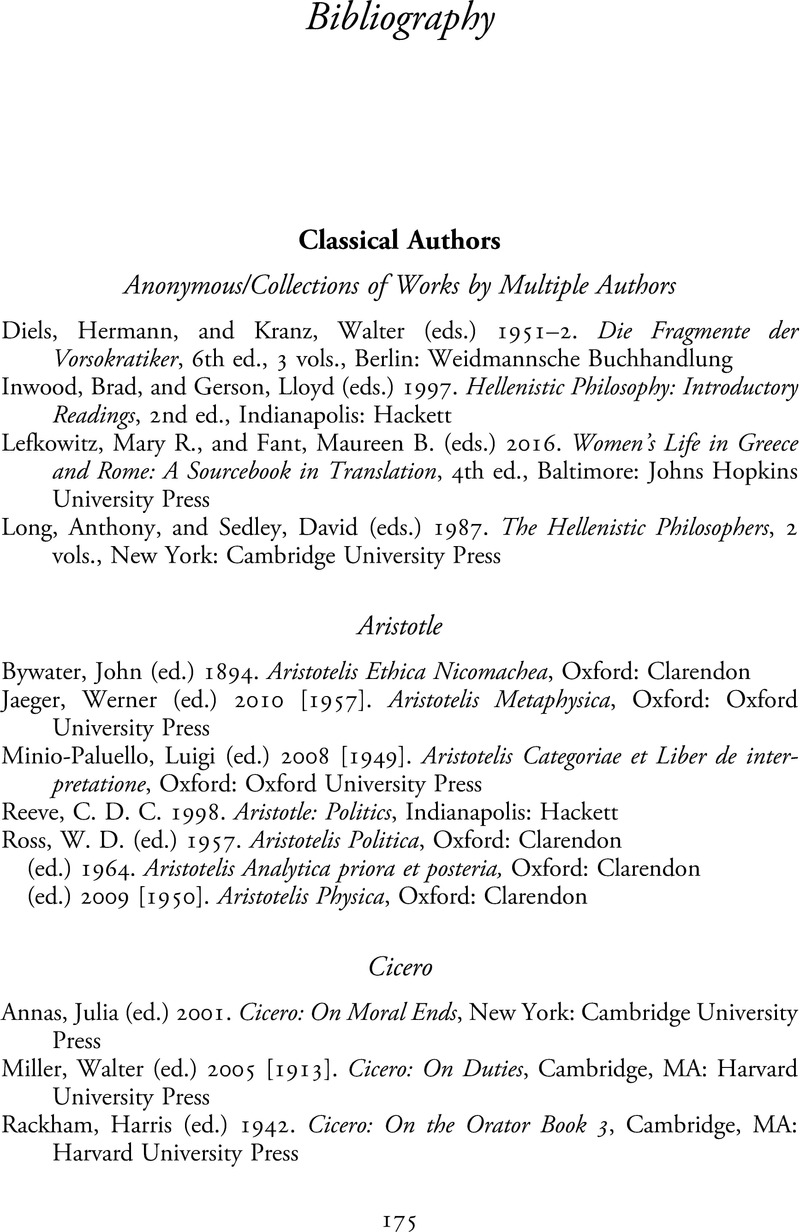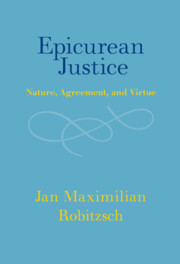Book contents
- Epicurean Justice
- Epicurean Justice
- Copyright page
- Dedication
- Contents
- Acknowledgments
- Introduction
- Chapter 1 The Origin of Justice
- Chapter 2 Contractual Justice
- Chapter 3 Aretaic Justice
- Chapter 4 Moral Psychology
- Chapter 5 Justice and Law
- Chapter 6 Ethical Naturalism
- Chapter 7 Conclusion
- Book part
- Bibliography
- Index Locorum
- General Index
- References
Bibliography
Published online by Cambridge University Press: 07 March 2024
- Epicurean Justice
- Epicurean Justice
- Copyright page
- Dedication
- Contents
- Acknowledgments
- Introduction
- Chapter 1 The Origin of Justice
- Chapter 2 Contractual Justice
- Chapter 3 Aretaic Justice
- Chapter 4 Moral Psychology
- Chapter 5 Justice and Law
- Chapter 6 Ethical Naturalism
- Chapter 7 Conclusion
- Book part
- Bibliography
- Index Locorum
- General Index
- References
Summary

- Type
- Chapter
- Information
- Epicurean JusticeNature, Agreement, and Virtue, pp. 175 - 193Publisher: Cambridge University PressPrint publication year: 2024

